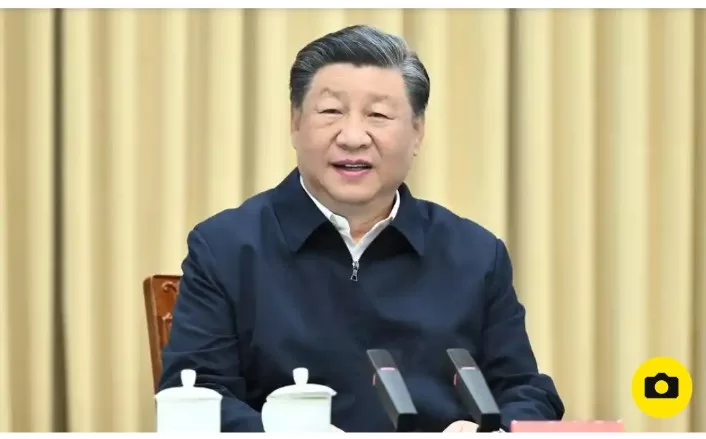In a surprising turn of events, the Chinese President, Xi Jinping, embarked on an unanticipated visit to Xinjiang, wherein he underscored the imperative of preserving hard-fought social stability while intensifying efforts to curb the proliferation of “illegal religious activities.” This visit marks only his second presence in the region since launching an extensive crackdown on the Uyghur and Turkic Muslim populace nearly a decade ago.
Xi’s arrival in Urumqi on the past weekend, as reported by Chinese state media, witnessed his engagement in a government work assessment and a discourse delivered before Communist party and government officials. During this visitation, President Xi adamantly emphasized the necessity to “further advance the Sinicisation of Islam and efficaciously govern illicit religious endeavors.”
The stringent measures undertaken by Xi within the Xinjiang region, particularly targeting the Uyghur population, have drawn condemnation from numerous quarters, including governmental bodies, human rights organizations, and legal entities. These measures have even been deemed as a pursuit of genocide.
Chinese authorities have implemented a severe crackdown encompassing the detention and reeducation of over a million individuals within specialized centers, accompanied by extensive mass surveillance and systematic curtailment of religious and cultural expression. Notably, religious and cultural sites have been either obliterated or severely restricted for religious observers, as documented by research groups. The United Nations, in a recent report, substantiated the credible evidence of torture and other egregious human rights violations against the Uyghur population. Concurrently, Human Rights Watch and legal oversight agencies have attested to the commission of crimes against humanity.
Xi, along with senior officials, vehemently rejects these accusations, categorizing them as a Western orchestrated conspiracy aimed at maligning China’s reputation. Instead, they rationalize their approach as an anti-extremism and poverty alleviation strategy. However, discernible evidence underscores Beijing’s policies targeting seemingly innocuous acts of religious observance, even including practices such as growing beards or engaging in Qur’anic studies.
President Xi laid emphasis on the paramountcy of “safeguarding social stability” as an underpinning principle, asserting its pivotal role in facilitating comprehensive development. He further asserted that Xinjiang, once considered a remote terrain, now assumes the mantle of a pivotal hub in the Belt and Road development initiative. This transition necessitates an increased openness towards domestic and international tourism.
Xi, in his counsel to local officials, underscored the significance of bolstering affirmative public perceptions while debunking false narratives and detrimental discourse. In his articulation, “In the trajectory of the Chinese-style modernization, we are poised to construct a resplendent Xinjiang, characterized by unity, prosperity, and self-assuredness.”
Reportedly, Xi’s visit revolved around addressing the “cultural identity” challenge, a step deemed indispensable for consolidating the Chinese nation, the Communist Party, and the unique “socialism with Chinese characteristics.”
Kenneth Roth, former Executive Director of Human Rights Watch, decried Xi’s visit as a “reaffirmation of his transgressions against humanity.”
This visit to Xinjiang followed Xi’s participation in the Brics forum held in South Africa. Notably, his inaugural visit to the region was recorded in June of the preceding year




